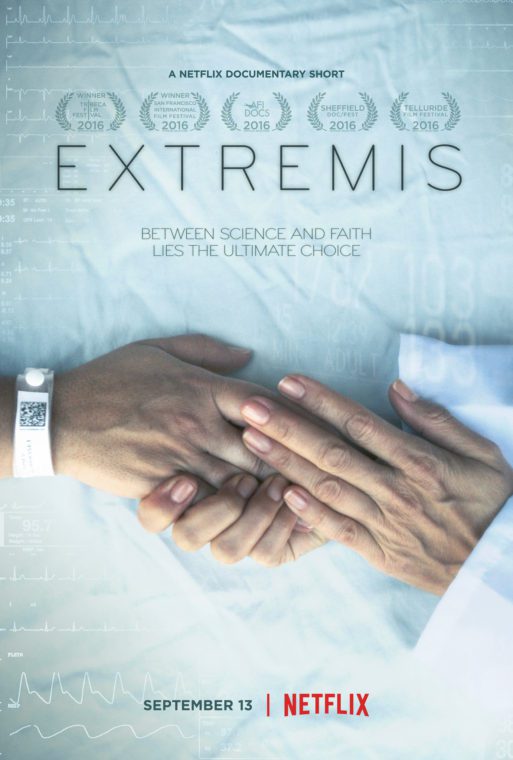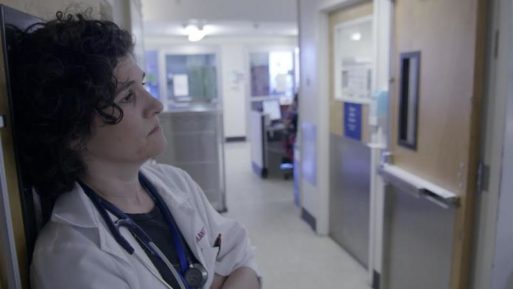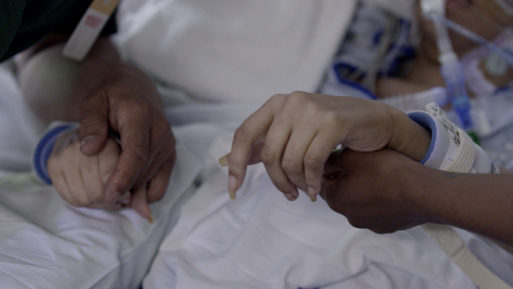 There is no experience on earth more disturbing than watching another human being struggling to stay alive. Yet that is the precise reality that the doctors and nurses who work in our nation’s emergency rooms encounter every day. Most often, the person they are treating is a stranger, and they often arrive at the hospital alone, with no one to speak on their behalf. With little information to guide their decision making and no time to seek out family and friends, these health care professionals are forced to make life and death decisions in the blink of an eye.
There is no experience on earth more disturbing than watching another human being struggling to stay alive. Yet that is the precise reality that the doctors and nurses who work in our nation’s emergency rooms encounter every day. Most often, the person they are treating is a stranger, and they often arrive at the hospital alone, with no one to speak on their behalf. With little information to guide their decision making and no time to seek out family and friends, these health care professionals are forced to make life and death decisions in the blink of an eye.
Sometimes those decisions have wonderful outcomes, but many times they do not.
“Extremis,” a short film by director Dan Krauss, is about the gut wrenching consequences that all too often follow the decision to save a life. Set in the Intensive Care Unit of Highland Hospital in Oakland, California, it follows palliative care specialist Dr. Jessica Zitter as she works with several families whose loved ones are being cared for in the ICU. Just 24-minutes long, the film is a powerful and incredibly intimate view how difficult end-of-life decision making can be for physicians and families alike.
At the beginning of the film we meet Donna and her husband, Gordon. Donna has been living with a progressive form of muscular dystrophy for many years, and she is now nearing the end of her life. Her muscle strength has deteriorated to the point that she can’t breathe effectively her own. When she arrived at the hospital, doctors inserted a breathing tube and placed her on a ventilator. Now, she, her husband and Dr. Zitter are faced with the monumental question: “What do we do now?”

Dr. Jessica Zitter standing in the hallway of Highland Hospital’s ICU
(Credit: broadwayfilm.com)
Hands tied to the bed rails to prevent her from dislodging the tube that is keeping her alive, Donna is in and out of consciousness. But when she is awake, she is visibly distressed. Breathing tubes are terribly uncomfortable for conscious patients, and Donna clearly wants it removed. Yet the doctors know that in her current state, she will almost certainly not survive if they take it out.
The second patient we encounter in is Selena, a woman who, for reasons not shared with us, had a cardiac arrest on the way to the hospital in the family car. Her daughter, Tama, was driving. She stopped the car on the side of the road, pulled her unconscious mother from the vehicle, and performed CPR for about 20 minutes until help arrived. Selena was resuscitated in the ER and placed on a ventilator. She is now comatose and unable to breathe on her own. As the movie progresses, Dr. Zitter explains to Tama several times that there is no likelihood that her mother will ever return to consciousness in a meaningful way.
Watching these two families interact with Dr. Zitter and her colleagues, we feel their anguish and determination and unbearable pain. Tama, an only child, is convinced there is hope that her mother will wake up despite the insurmountable odds. Wearing sunglasses that hide her eyes but not her grief, she tells Dr. Zitter, “She can go at any time, but she knows to stay here because she loves me. If I were to pull that life support, there would be no me.”

Credit:tribecafilm.com
Donna’s family is more at peace, having had time to adjust to her diagnosis, and plan, as best they could, for what was to come. Yet Gordon’s pain is no less horrible to watch. When his wife finally tells the doctor to remove the tube and refuses further intervention, he tries one last time to reassure himself that this is what she wants. “No? You don’t want a feeding tube and the tracheotomy?” he asks her. “No? No matter what?” But when she shakes her head “No” one more time, he seems finally to relax. “You did the right thing, okay?” he says to his beloved. “I’m gonna do the right thing, just trust me.” You can see in Donna’s eyes that she does.
The winner of the Best Documentary Short award at the Tribeca Film Festival in 2015, “Extremis” is an important film. In a little less than half an hour, it draws us inexorably into the tragic, awful, yet deeply beautiful place where life and death meet. It is raw and emotional and painful to watch. But watch it anyway. I promise you will come away deeply touched.

 “Extremis” Directed by Dan Krauss
“Extremis” Directed by Dan Krauss


 John Mulaney’s “Funeral Planning” on Netflix: No Real Plan
John Mulaney’s “Funeral Planning” on Netflix: No Real Plan

 Composting Bodies Is Now Legal in a Dozen States
Composting Bodies Is Now Legal in a Dozen States














